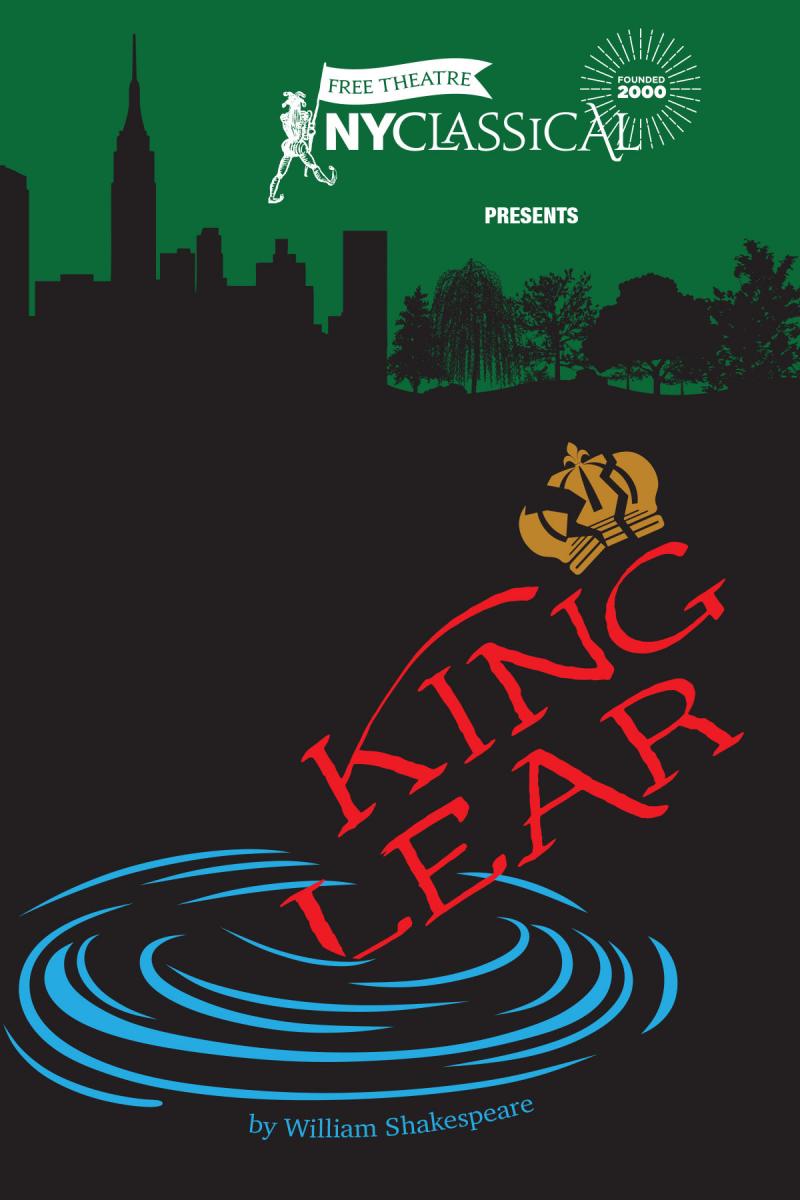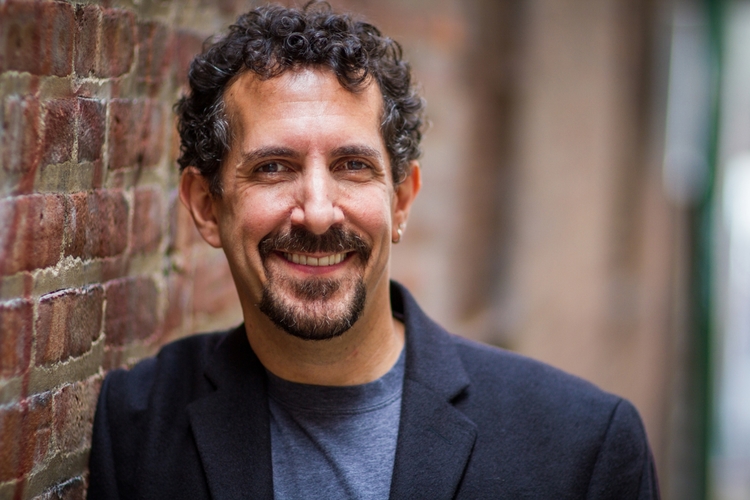Interview: NY Classical Theatre's Stephen Burdman Gets Ready to Present a Different Kind of KING LEAR
 On Thursday, June 25 (8pm EDT), NY Classical Theatre, New York City's all-free Off-Broadway Equity theatre company, will present a free virtual zoom reading of William Shakespeare's King Lear as a fundraiser for an intended full production later this year. While the reading is free and open to the public, NY Classical is requesting a $30 per person suggested contribution to offset the cost of the benefit and to raise funds toward a full production.
On Thursday, June 25 (8pm EDT), NY Classical Theatre, New York City's all-free Off-Broadway Equity theatre company, will present a free virtual zoom reading of William Shakespeare's King Lear as a fundraiser for an intended full production later this year. While the reading is free and open to the public, NY Classical is requesting a $30 per person suggested contribution to offset the cost of the benefit and to raise funds toward a full production.
Below, BroadwayWorld checks in with Burdman as he prepares for the big night!
Firstly, what can you tell me about this 'happy ending' version of the play that you'll be presenting?
 Shakespeare died 1616 and in 1681 a gentleman named Nahum Tate was one of a series of people who adapted many of his plays. In this particular instance, it was a very free-handed adaption. He made a lot of changes and wrote a lot of scenes and one of the exciting parts was that King Lear has a happy ending. Shakespeare actually based this play on a poem, and in that poem it was a happy ending. So when Shakespeare first came out with King Lear, people were shocked about the ending.
Shakespeare died 1616 and in 1681 a gentleman named Nahum Tate was one of a series of people who adapted many of his plays. In this particular instance, it was a very free-handed adaption. He made a lot of changes and wrote a lot of scenes and one of the exciting parts was that King Lear has a happy ending. Shakespeare actually based this play on a poem, and in that poem it was a happy ending. So when Shakespeare first came out with King Lear, people were shocked about the ending.
To be clear, we're basically doing a hybrid. What I've done is spliced the two plays together using as much of Shakespeare as I could. I felt that because he had such a free hand, I could have an equally freehand at adapting, because these rewrites had happened for many of his plays. Theatre at the time was very moral and they wanted moral endings and things like that... so for example I would say it was more misogynistic. They made Cordelia more of a wilting flower. I tried to cut back that to keep Shakespeare's intention. So it should be fun and people should see things they have never seen before. The idea is a full production that will alternate nights. Every night will be a different ending. That was the original plan. We hope that's still going to happen sometime later this year.
Is there any kind of rough timeline for that production?
Well the hope would be for the fall. We present outside, so that already takes away about 50-60 percent of people's concerns. We are working now with the unions and with one particular site space. Lear was originally scheduled to go to five different places, so this is only one of the five... but they have offered it to us. They will have their own safety and sanitary standards as will the actors union and directors union. So that's the next step for all of us right now as soon as the reading is done- for all of us to kind of put all this on paper and get approvals from people, and of course first and foremost, making sure people are safe. The first thing we have to make sure is that we can get the actors to and from rehearsals safely. The audience is also incredibly important, but if we can't start with the artists, we can't create the show.
What challenges have you encountered in the rehearsal process in not being in the room with your actors?
I think we've adapted pretty well. We did a reading in late April. It was a closed reading, but it was a Zoom-based webinar for Three Sisters and we learned a lot and I watched a few others. We're utilizing breakout rooms for voice and speech work. Rather than fight it, we're trying to very much embrace it. There are challenges- for example, you cannot control what I call the 'Brady Bunch box' on your screen. Everyone sees it differently and an actor can't look left or right and always see the same person, so the audience doesn't always know who you're talking to. So it can take away the point of view that the director puts into the play.

My fight director is involved. Obviously we can't do a full fight, but there are moments of extreme violence in this play and he's actually working on a Zoom reading. I bet he never thought he would do that! He was talking a lot about reactions... point of view. How can an actor uses the camera on their computer or phone? We figured something out yesterday: how do you do an aside? Our quick solution- the actor moves really close to the camera and completely fills the camera with their face like an extreme close up. That's kind of fun, right?
I love that!
The way we perform is called panoramic theatre, so this is very similar. In our technique the actor always looks directly at the audience and it's the same case here.
With so many theatres struggling right now, many are depending on the generosity of donors and virtual events like this one. How important is it to NY Classical Theatre for people to tune in on Thursday?
It is important. I can't say it's not. We're asking people to make a voluntary donation if they're able to. Everything is free that we provide. That's what we do. We provide free professional theatre. It's a full union crew, who receive benefits and healthcare and stuff, which is also exciting for us. We want to make sure we can hire the artists so they can make sure to get off unemployment for a week and a half or so. We promised everybody a job and we want to give them a job. It's not the same job as before, but you know... it is important! This was of course not anticipated, but it's a taste. We don't have previews like they do on Broadway, so we don't get that opportunity to make radical changes. This is a chance for us to try some stuff and see how it works.
For details or to register for the event, visit https://nyclassical.org/king-lear.
Stephen has directed and produced over half of Shakespeare's canon for NY Classical Theatre. Favorite productions include: The Importance of Being Earnest (Two Ways), Romeo & Juliet, The Rivals, Measure for Measure, A {15-Min!} Christmas Carol, The Seagull, Playing Moliere, Henry V (New York Times Critic's Pick), Hamlet, King Lear, Misalliance, and Mary Stuart. MFA University of California, Irvine; National Theater Institute. Member of Stage Directors and Choreographers Society since 1994. Stephen is the former Chair of the Artistic Committee of the Shakespeare Theatre Association. He has also been a panelist with the National Endowment for the Arts, NYC Department of Cultural Affairs, ART/New York, and the Stage Directors and Choreographers Foundation.

Videos

